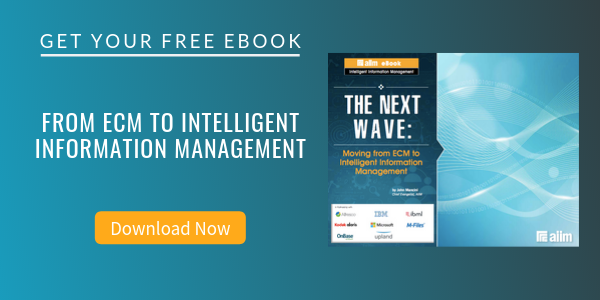
8 Things about an Information-Driven Business
Data Management | Intelligent Information Management (IIM)
Adapted from Information-Driven Business: How to Manage Data and Information for Maximum Advantage, by Robert Hillard. John Wiley & Sons, Inc. Reprinted with permission.
Everyone recognizes the need to get more value from their information assets. The following are eight things for an Information-Driven Business to consider.
How to Become an Information-Driven Business
1. Develop an Information Governance Charter
Such a charter needs to be embraced by the board or its equivalent and have a set of principles that are aligned to the strategic goals of the organization and recognizing the structural tensions that exist in every business.
2. Establish Fact-Based Decision Making
An important information principle is that the information asset should be leveraged every day in every decision. Both strategic and operational decisions should be based on facts that can be sourced back to data that is held by the enterprise.
3. All Data Should be Integrated with Consistent Definitions
Accepting that an organization’s major asset is information, there is no value in each unit of the enterprise being part of the whole unless it is able to leverage that enterprise asset in an integrated and synergistic way (i.e., the whole is greater than the sum of parts).
4. Retain Appropriate Detailed Data
Information should be retained whenever physically possible within the constraints of government legislation, corporate ethics, and privacy commitments.
5. Measure the Quality of Data
Data quality is relative to the purpose to which it is to be applied. Decision-makers not only need access to data, but more importantly, they also need to understand the timing, reconciliation, completeness, and accuracy of that data. Data quality is neither abstract nor qualitative; rather, it should be measured in absolute terms.
6. Provide Appropriate Enterprise Access.
Staff are a valued and trusted resource to the company. By default, every member of staff can be trusted to handle information appropriately and sensitively. The default position is that a staff member can access information unless there is a specific commercial, legal, or ethical reason why the information should not be made available to this individual.
7. Every Data Item has one Person or Role as Ultimate Custodian
Every item of data requires unique and ultimate ownership by a single role and person. This does not imply that all customers, products, or other items of data maintain common ownership, rather it means that a matrix of responsibilities should be managed which ensures that issues or conflicts always have an ultimate point of escalation.
8. Establish Measures of Information Governance Success
The principles of information governance should become Key Performance Indicators (KPIs) with project budgets being structured to include an element expressed in terms of information goals.
About John Mancini
John Mancini is the President of Content Results, LLC and the Past President of AIIM. He is a well-known author, speaker, and advisor on information management, digital transformation and intelligent automation. John is a frequent keynote speaker and author of more than 30 eBooks on a variety of topics. He can be found on Twitter, LinkedIn and Facebook as jmancini77. Recent keynote topics include: The Stairway to Digital Transformation Navigating Disruptive Waters — 4 Things You Need to Know to Build Your Digital Transformation Strategy Getting Ahead of the Digital Transformation Curve Viewing Information Management Through a New Lens Digital Disruption: 6 Strategies to Avoid Being “Blockbustered” Specialties: Keynote speaker and writer on AI, RPA, intelligent Information Management, Intelligent Automation and Digital Transformation. Consensus-building with Boards to create strategic focus, action, and accountability. Extensive public speaking and public relations work Conversant and experienced in major technology issues and trends. Expert on inbound and content marketing, particularly in an association environment and on the Hubspot platform. John is a Phi Beta Kappa graduate of the College of William and Mary, and holds an M.A. in Public Policy from the Woodrow Wilson School at Princeton University.



